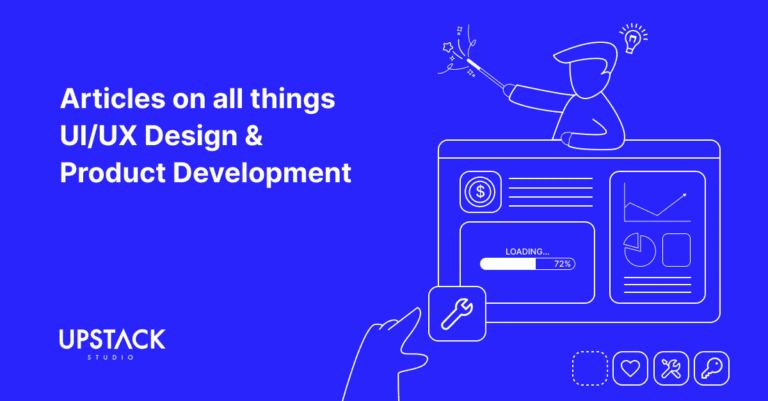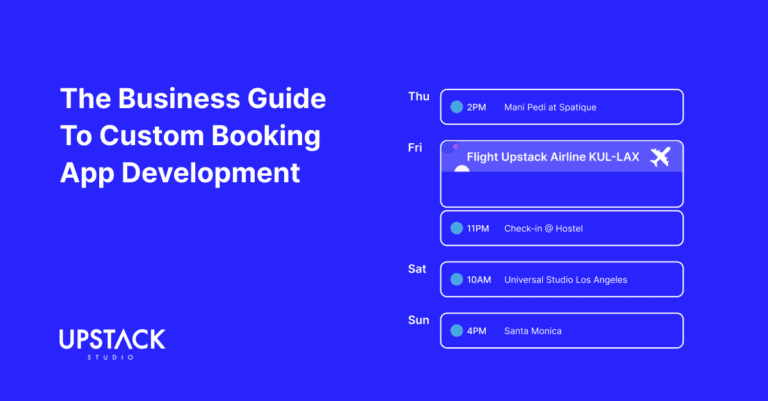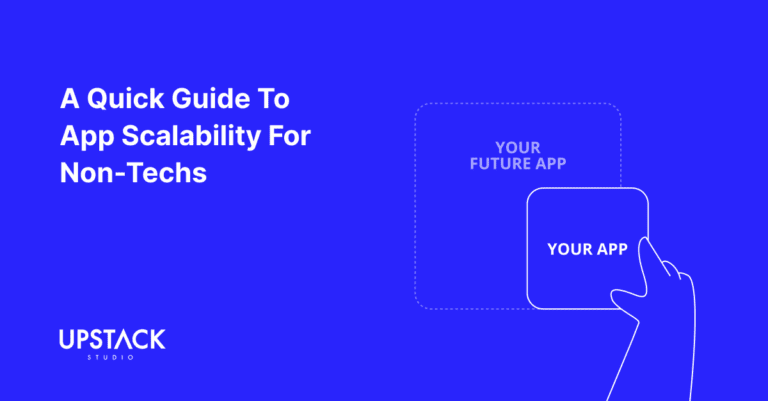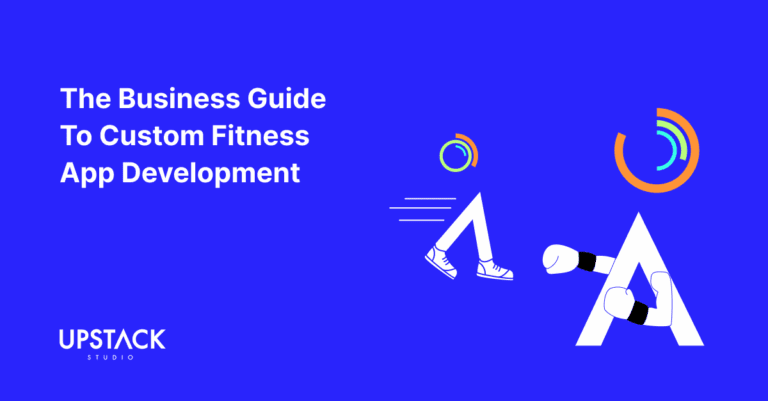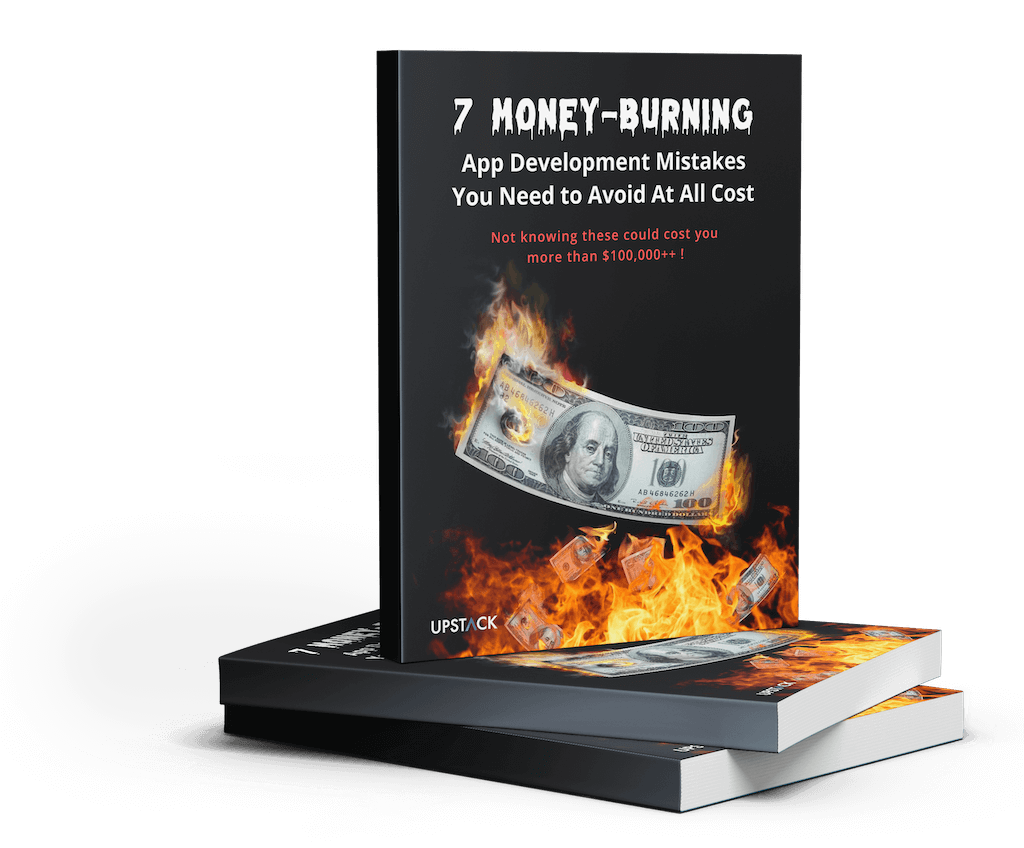Everyone’s Doing Cross-Platform Development Now
According to recent industry reports, cross platform app development frameworks will experience a global 16.8% CAGR by the end of 2023.
Given the high entry of smaller players into the app space, cross-platform development’s ability to do ‘more with less’ is extremely appealing.

Having decided on cross platform development, founders must likely decide between two of the most popular and widely-used frameworks for their project: React Native or Flutter.
That’s what this post covers!
But first, let’s be clear on what cross-platform development means.
A Quick Overview of Cross-Platform Development
Essentially, cross-platform app development involves using frameworks with programming language that works across multiple platforms like Android, iOS, and Windows.
By far, the most compelling advantage of cross-platform app development is the time and cost saved – expenses can be half of what developing two native apps would cost.

The bigger question is not whether or not to go cross-platform, but how to go cross-platform.
In other words, Flutter or React Native – which is better for your particular project?
React Native vs Flutter at a glance
| Key Differences | React Native | Flutter |
| Language Used | JavaScript | Dart |
| Community Support | Established with a bigger Community | Growing, but smaller compared to React Native |
| Performance | Slightly lower compared to Flutter | Superior due to direct platform communication |
| Installation | Node Package Manager (NPM) | Binary download from source |
| UI Components | Less, depends on third-party libraries | Lots of widgets available for UI |
| Testing Support | Lesser Support | Excellent, includes Widget testing |
| Framework Maturity | More Mature, Released in 2015 | Less Mature, Released in 2017 |
Overview of React Native
React Native, created by Meta and released as an open source framework, is extremely established in the world of cross-platform app development.
It allows developers to construct high-performing applications using JavaScript.
The notable features such as Hot Reloading and a robust set of pre-developed components have only fueled the debate of Flutter vs React Native.
Notable examples of apps built on React Native
Lots of popular apps run on React Native, and we’ve put together a list of our three favourite examples to showcase the framework’s versatility:
Facebook & Instagram

These social networking giants use React Native to deliver consistent functionality and performance across their iOS and Android apps which receive high-volume traffic.
Bloomberg

The global business and finance news giant uses the platform to deliver real-time updates and personalized content to its users.
UberEats

The ride-hailing giant is proof of how well React Native can manage real-time data logistics and facilitate seamless communication between customers, drivers, and restaurants.
Overview of Flutter
In comparison, Flutter comes from the tech-giant Google and uses a programming language called Missile (kidding, I know it’s Dart).
It offers developer-friendly features like Hot Reloading, vast widget catalogs, and excellent UI capabilities.
Notable examples of apps built on Flutter
Just as with React Native, plenty of popular apps use Flutter as their framework of choice, case in point the following list.
Google Ads

Google Ads, one of the popular tools for running online advertising campaigns, has relied on Flutter for an excellent user interface and consistent performance across iOS and Android platforms.
Alibaba
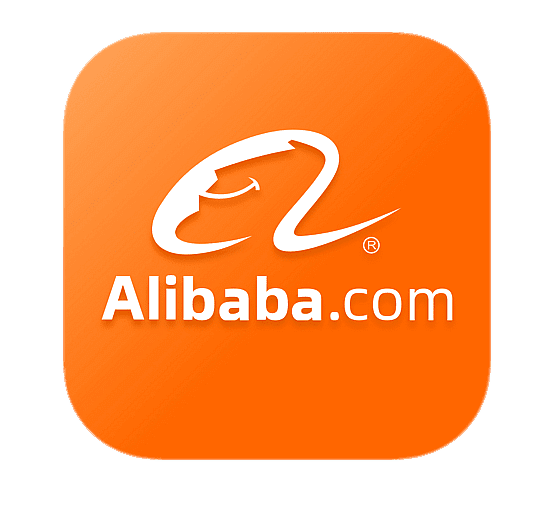
The world-renowned Chinese multinational conglomerate, Alibaba, employs Flutter in crafting a smooth, user-friendly shopping experience that runs efficiently on different operating systems.
Hamilton Musical

Not exactly a household name, but perhaps the most cultured example on this list!
Hamilton Musical, a top-rated Broadway show and cultural phenomenon, utilized Flutter to create an application that could provide users with daily lucky draws, scheduling information, and cast / show details, accurately and promptly.
To many, the choice between React Native vs Flutter comes down to these key attributes.
Flutter vs. React Native: Key Feature Comparison
Development environments & tools provided
React Native leverages JavaScript, one of the most popular languages, and integrates well with widely used IDEs.
Conversely, Flutter uses Dart, a language less familiar to most developers, but offers a comprehensive set of widgets and tools to make visually appealing interfaces.
Availability of libraries, plugins, & 3rd-party support
Both React Native and Flutter boast vast ecosystems, hosting numerous libraries and plugins for a smoother development process.
While React Native has a slightly more mature community, Flutter is quickly catching up.
Comparing Performance Benchmarks Between React Native and Flutter
An ideal cross-platform application should not compromise on performance or speed. React Native executes JavaScript at runtime, causing occasional performance bottlenecks.
Flutter, meanwhile, provides native-like performance thanks to its Dart and Skia graphics engine.
Choosing the Right Cross Development Framework
This ‘React Native vs Flutter battle’ has never actually been a battle.
Use one or the other – both are capable of supporting the development of a variety of apps, and are rarely ever the limiting factor.
It ultimately depends on your team’s expertise and the nature of your project.

Despite both being excellent choices for cross-platform app development, your choice between React Native and Flutter should be guided by your project’s unique requirements, the nature of the app, and your team’s expertise.
When to choose React Native
- you’re aiming to expand your existing project with multi-platform components.
- the app will have an asynchronous make-up and visually striking UI
- to craft streamlined, lightweight native apps
- the app needs shared APIs immediately
- you have a less restricted timeframe and budget
If this matches your requirements, check out our full guide to React Native for app development.
When to choose Flutter
- If you want to have a single codebase with multi-platform support.
- Need an application that executes between 60 FPS and 120 FPS.
- Need a user-friendly and customized UI with widgets
- If you are running out of budget and have a short timeframe to complete a project.
- Need to publish your product soon and write code quickly.
- If your app doesn’t need any native functionality.
If this matches your requirements, check out our post on FlutterFlow AI Gen, where we look at one of the top no code app builders running on Flutter.
Conclusion: Both Frameworks Are Effective
With insights into React Native and Flutter, you’re now better equipped to make an informed decision for your next project.
Remember, the best platform is the one that aligns with your vision the most.
So, dig deeper, scrutinize, and choose wisely!
Hey there stranger, thanks for reading all the way to the end. Consider joining our mailing list for a one-stop resource on everything from micro SaaS validation all the way to execution and promotion. Get a nifty list of questions to ask app developers when you sign up!
App Developer Interview Questions Template
Download this template now so you know exactly what to ask App Development Agencies! Let us know where should we send it through the form below.

